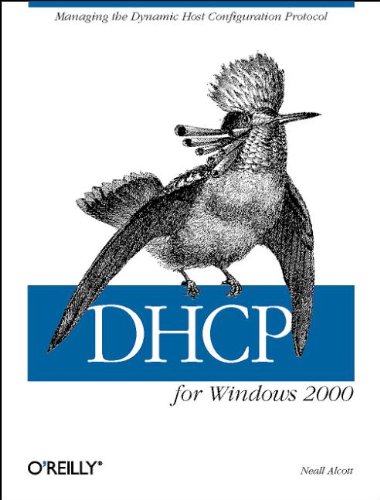

Most ebook files are in PDF format, so you can easily read them using various software such as Foxit Reader or directly on the Google Chrome browser.
Some ebook files are released by publishers in other formats such as .awz, .mobi, .epub, .fb2, etc. You may need to install specific software to read these formats on mobile/PC, such as Calibre.
Please read the tutorial at this link. https://ebooknice.com/page/post?id=faq
We offer FREE conversion to the popular formats you request; however, this may take some time. Therefore, right after payment, please email us, and we will try to provide the service as quickly as possible.
For some exceptional file formats or broken links (if any), please refrain from opening any disputes. Instead, email us first, and we will try to assist within a maximum of 6 hours.
EbookNice Team

Status:
Available4.6
12 reviewsDynamic Host Configuration Protocol (DHCP) is an open standard Internet protocol used to allocate and manage IP addresses dynamically. Before DHCP came along, administrators had to manually configure each host on a network with an IP address, subnet mask, and default gateway. Maintaining the changes and the associated logs took a tremendous amount of time and was prone to error. DHCP uses a client/server model in which the system updates and maintains the network information dynamically. Windows 2000 provides enhanced DHCP client-server support.
DHCP for Windows 2000 is custom-designed for system administrators who are responsible for configuring and maintaining networks with Windows 2000 servers. It explains the DHCP protocol and how to install and manage DHCP on both servers and clients--including client platforms other than Windows 2000.
Readers get detailed and explicit instructions for using Windows 2000 DHCP to manage their network IP configurations much more efficiently and effectively.They get background information for using DHCP in general, plus complete information about the Windows 2000 use of DHCP. For those interested in what's on the horizon, the author steps up to the plate with an analysis of the future direction of DHCP and Windows support for IPv6.